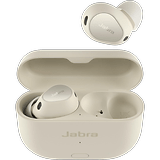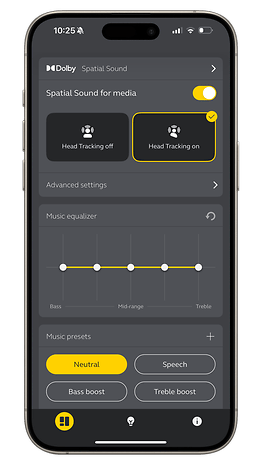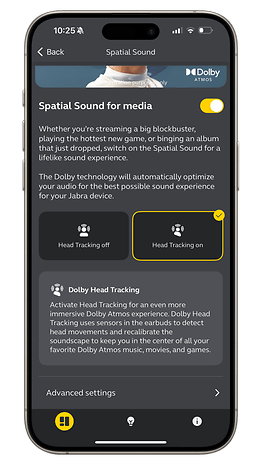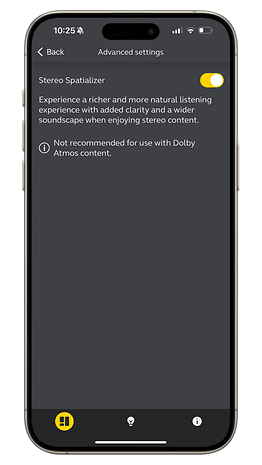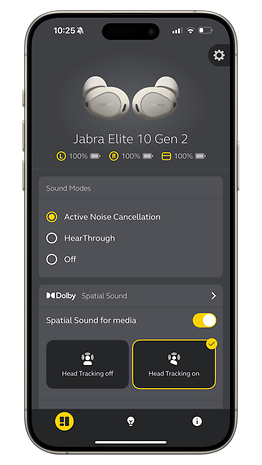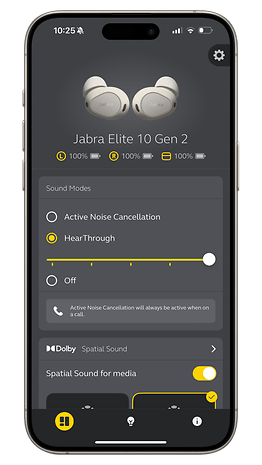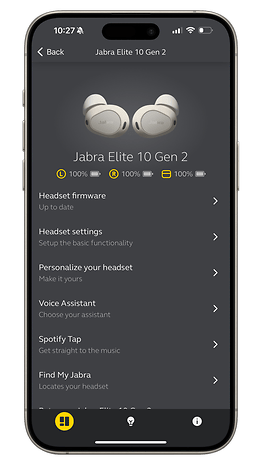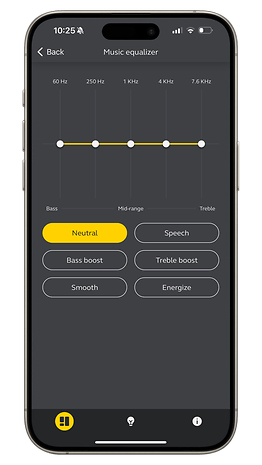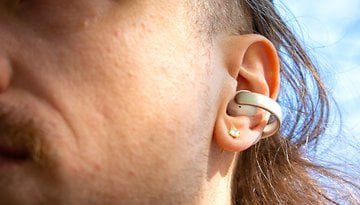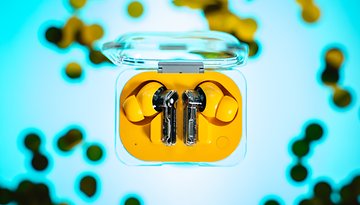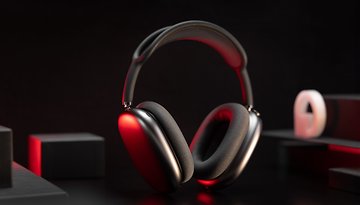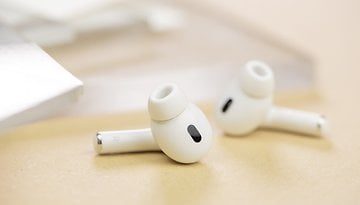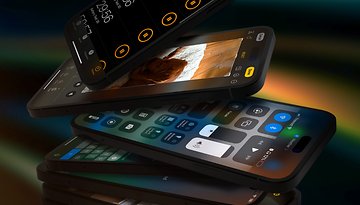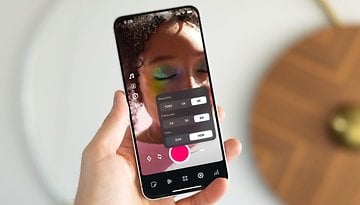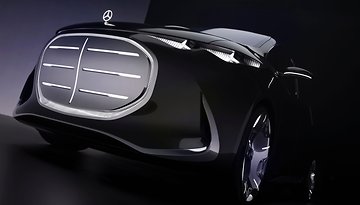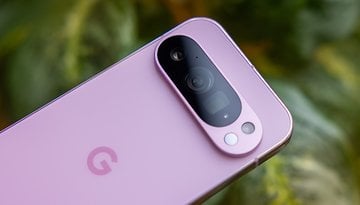Jabra Elite 10 Gen 2 Review: Finishing on a High Note
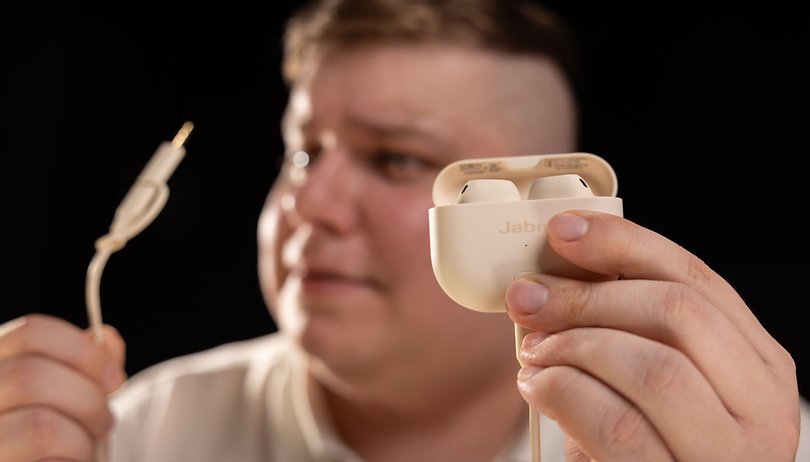

Jabra has launched its new and probably last wireless earphones, the Jabra Elite 10 Gen 2, an evolution of the Jabra Elite 10 we tested several months ago. Not much has changed, apart from this very special charging box. Compatible with Bluetooth LE Audio, it lets you connect the Jabra Elite 10 Gen 2 to almost any audio source. It's a lot of fun, and it works really well. We will tell you all about it in this full review.
Good
- Neutral audio signature
- Elegant, compact, and comfortable design
- IP57-rated
- Excellent active noise reduction
- Good battery life
- Special Bluetooth LE housing
Bad
- No HD codec
- Unclear after-sales service and updates
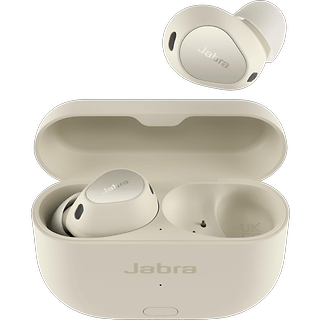
Prices and availability
The Jabra Elite 10 Gen 2 was launched in June 2024 at a price of $280. That's more expensive than the Jabra Elite 10 we reviewed a few months back. And $50 more expensive than the current Amazon price of the aforementioned basic Jabra Elite 10.
Yet, visually, nothing distinguishes this generation from the first. And in terms of functionality, there are a few algorithm improvements for spatial audio and noise reduction, but nothing transcendent. But the Jabra Elite 10 Gen 2 do have one big advantage, and it lies in their charging case.
Editor's note: Jabra's parent company, GN, recently announced the closure of its consumer divisions. The Jabra Elite and Talk ranges will gradually disappear. The manufacturer promises that it will provide some after-sales service and software updates, without specifying for how long. But inventory should be sold out by the end of 2024. You can still buy Jabra products today. The brand won't disappear overnight. But once the shutdown begins, nextpit will no longer be able to recommend Jabra headphones and will update the relevant tests and comparisons.
Design
The Jabra Elite 10 Gen 2 are visually identical to the first generation. The form factor is as compact as ever. And the design is as elegant, discreet, and comfortable as ever. There are also new, pretty pastel colors.
Pros
- Compact, elegant, and comfortable design.
- IP57 certified.
- Physical buttons.
- Port detection.
Cons
- Design identical to the previous generation.
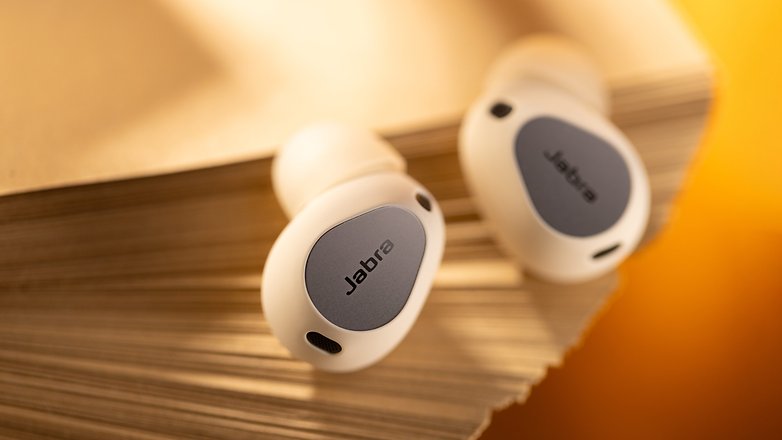
The Jabra Elite 10 Gen 2 are very compact earphones. The pick-inspired design (or plectrum, a word I've just learned) hugs the shape of your ear very well. The semi-intra format is not too intrusive in the ear canal, making the earphones comfortable to wear. The matte coating resembles the texture of skin to the touch.
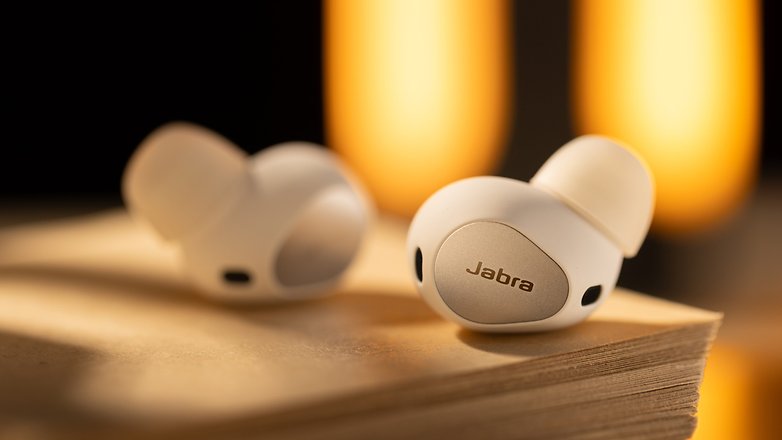
The earphones are IP57-certified, so you can definitely consider them for sports. With the default ear tips, I found the fit to be very stable, and I also appreciate that the earphones have physical buttons for controls rather than tactile ones. The charging case is also very compact, making it easy to stow away in a pocket. I found its hinge rather solid.
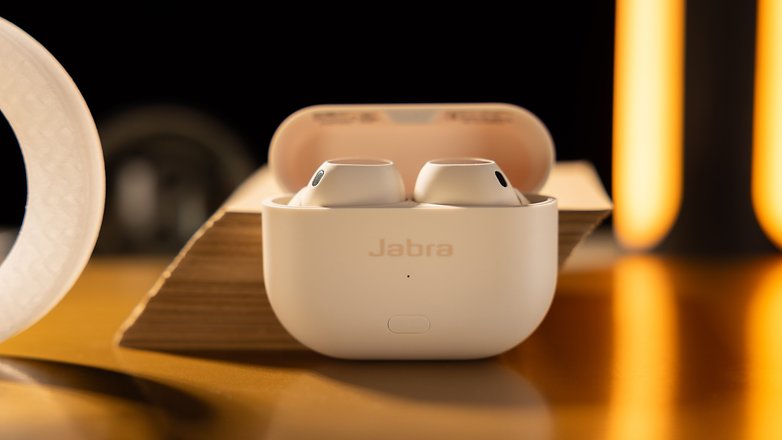
But I've already described all this in my review of the first-generation Jabra Elite 10. The real new thing in terms of design on this Gen 2 is the little button centered at the bottom on the front of the case.
The Jabra Elite 10 Gen 2 case is in fact compatible with the Bluetooth LE Audio codec. With the supplied jack-to-USB-C cable, you can connect the box to any audio source. Your headphones then connect via Bluetooth to the box, and you can receive audio from your source.
It's a very niche feature that meets an even more niche need. But it's terribly effective and I simply loved it. I'll tell you more about it below.
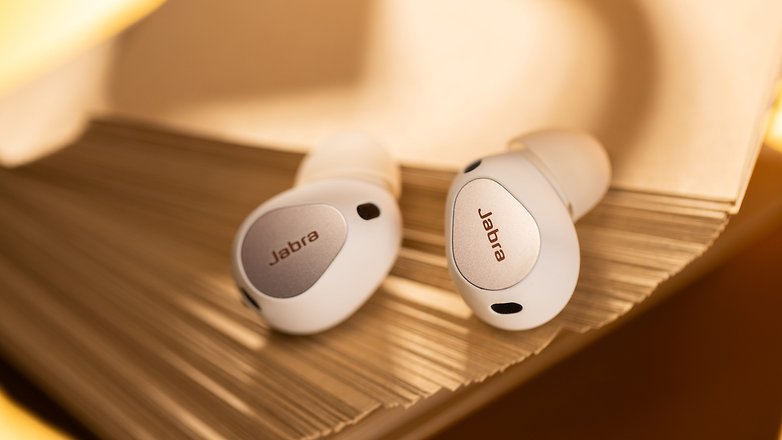
Audio quality
The Jabra Elite 10 Gen 2 feature the same 10 mm drivers as the previous model. The audio signature hasn't changed much. It's still very neutral, with bass a little too low and a few peaks in the treble that can be annoying at high listening volumes. Jabra explains that it has revised its algorithms to improve the quality of spatial audio. But for lovers of a fairly balanced sound, the Jabra Elite 10 Gen 2 remain a very good choice.
Pros
- Neutral overall audio signature, balanced rendering.
- Very good spatialization.
Cons
- Subdued bass and some treble brightness.
- No HD codec.
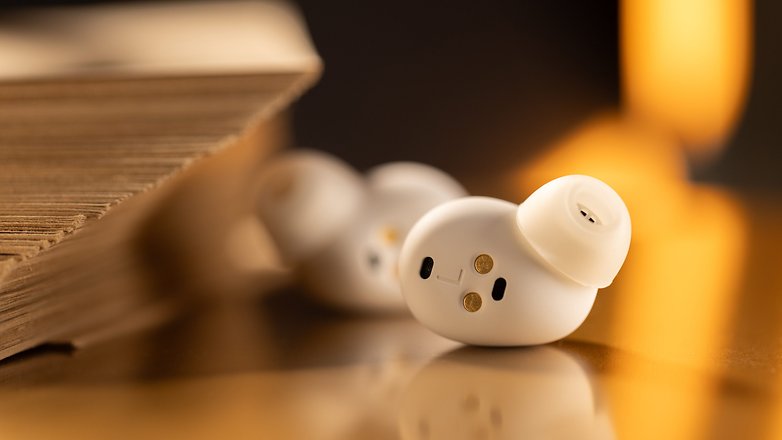
The Jabra Elite 10 Gen 2 are not the most advanced headphones for listening to HD audio. They only support the basic AAC and SBC codecs. They are therefore not Hi-Res certified.
However, Jabra explains that it has thoroughly reworked its algorithms for spatial audio. This feature uses Dolby Atmos and head tracking. This tracking is quite effective and doesn't require you to take a photo of your ears, as Apple does.
But personally, I really don't listen to Dolby Atmos tracks. For compatible films and series, however, it's very nice and immersive, but I honestly can't tell you whether there's a clear difference in quality between the Jabra Elite 10 and the Gen 2.
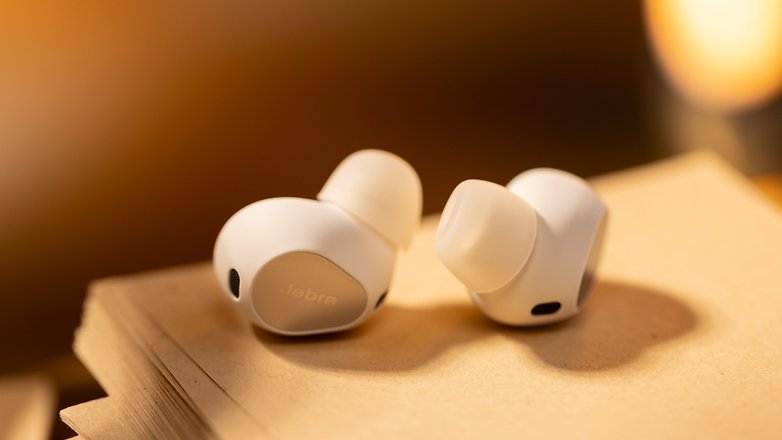
The same goes for the audio signature. My impression is that it's identical to that of the previous model. And that's a good thing. The rendering is very neutral; in other words, Jabra's processing doesn't distort the original sound.
Some may regret the lack of bass depth and impact. Personally, I didn't mind, since everything is balanced and more or less at the same level.
On the other hand, I did notice a few peaks in the treble. You could call it brilliance. Sibilant "S" or "F" sounds are sometimes too accentuated, especially at high listening volumes. And there's that sensation of stridency that makes eardrums creak a little. But it's not outrageously noticeable. You really need to push the volume well above 50% on your source to notice it.
Active Noise Reduction (ANC)
For a long time, Jabra headphones lacked active noise reduction. But with the Jabra Elite 10, the manufacturer had made up all the ground on its more efficient competitors such as Apple and Sony. The Jabra Elite 10 Gen 2 retains these very good assets, with the promise, once again, of more efficient algorithms.
Pros
- Excellent attenuation of structure-borne and airborne noise.
- Natural transparency mode.
Cons
- No manually adjustable noise reduction.
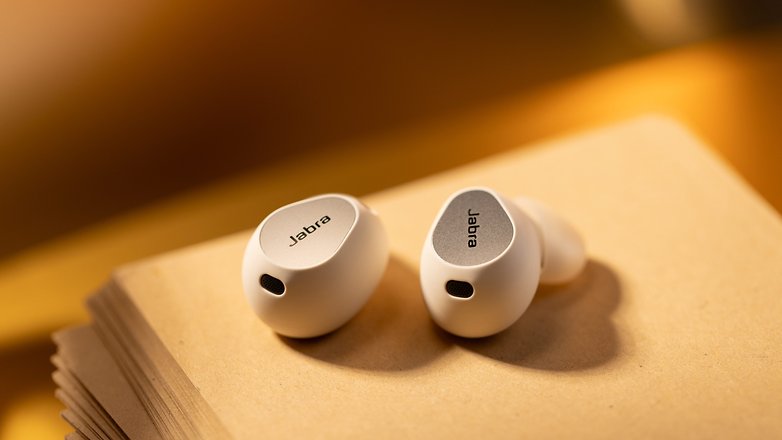
I don't know if it's a placebo effect and I've been fooled by Jabra's marketing, but I found the active noise reduction of these Jabra Elite 10 Gen 2 even better than on the basic Jabra Elite 10.
I compared the Jabra headphones to the excellent Bose QC Ultra Earbuds (review). And I found the ANC of the Jabra Elite 10 Gen 2 to be just as good as that of Bose, the current champion in this field.
Jabra is highly effective at attenuating structure-borne noise. These are the noises that result from contact between two surfaces, such as footsteps, cars, subway tracks, etc. And airborne noises such as doorbells and human voices are also canceled out very effectively. This kind of fluctuating, irregular noise is particularly difficult to analyze and process in real-time.
The transparency mode, which amplifies ambient sounds, is also excellent. The rendering is very natural, with no distortion or hiss. I just think it's a shame not to be able to manually adjust the intensity of the ANC. Especially as Jabra lets you do this for transparency.
It's a bit of a shame that Jabra is in danger of not releasing any more headphones when they've only just closed the last gap separating them from market leaders like Sony, Apple or Bose.
Features and applications
To control and customize the Jabra Elite 10 Gen 2, you can use the Jabra Sound+ app. The essential features are all there. But Jabra has kept a big trump card in its bag with this famous box that can be wired to any audio source. Even if it doesn't support Bluetooth!
Pros
- Application available on Android and iOS.
- Multipoint, port detection, Find My Device, Spotify Tap.
- Five-band equalizer.
- Bluetooth LE Audio.
- Box can be used as a Bluetooth transmitter.
Cons
- The hearing test for customizing sound has disappeared.
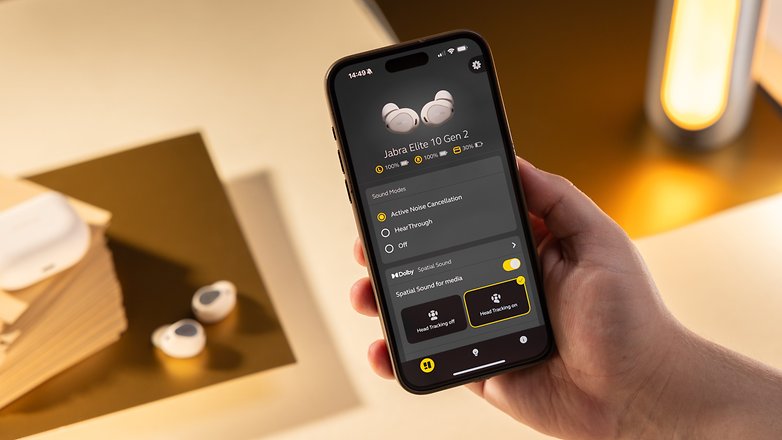
I won't dwell on this part of the test. For a more detailed overview, check out my test of the first-generation Jabra Elite 10. Nothing has changed.
Ambient noise management, five-band equalizer, spatial audio with head tracking, multi-touch, Spotify Tap, port detection, mono use, etc. It's all there, and it's all very well. It's all there, and it's very good.
However, the Jabra Sound+ application has lost a few features that I really appreciated. The hearing test for more precise equalization settings has disappeared, for example.
On the controls side, the Jabra Elite 10 Gen 2 have physical buttons. And these are highly customizable. Each earpiece can recognize three types of press (single, double, triple). A long press on the right earpiece raises the volume, a long press on the left earpiece lowers it. In short, the physical controls are intuitive and reliable.
| Left earpiece | Right earpiece | |
|---|---|---|
| Single press | Transparency / ANC | Play / Pause |
| Double press | Voice assistant | Next track |
| Triple press | Assign shortcut | Restart song |
| Long press | Lower volume | Increase volume |
But the most interesting thing about these Jabra headphones is their casing. I've been teasing you about it since the start of this test, and now we're finally talking about it. The case incorporates Bluetooth LE Audio technology. This enables the case to act as a Bluetooth transmitter using the LC3 codec.
Basically, Jabra provides you with a USB-C cable and a 3.5 mm jack adapter. Simply plug the jack part of the cable into the jack port of any audio source. This could be a PC, console, or TV. Then plug the other end of the cable into the USB-C port on the Jabra headset housing.
Then take your earphones out of the case and press the button centered at the bottom of the front of the case once. Your headphones will then connect to the box, which transmits the audio from your source via Bluetooth.
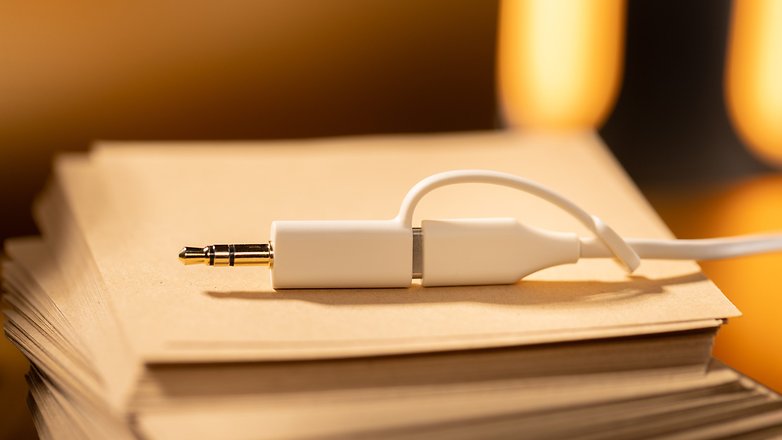
Personally, I consider this a killer feature that I loved. On video game consoles like the Xbox or PS5, it's impossible to pair wireless headphones. Consoles use a specific Bluetooth protocol. Only certain models from certain certified brands are compatible. It's really unbearable.
But with this Jabra feature, I was able to connect the Jabra Elite 10 Gen 2 to the jack port of my Xbox controller and get sound. Much better sound than my official Microsoft wireless headset. It's also ideal for watching TV without disturbing others at home, late at night.
It's really an excellent idea from Jabra.
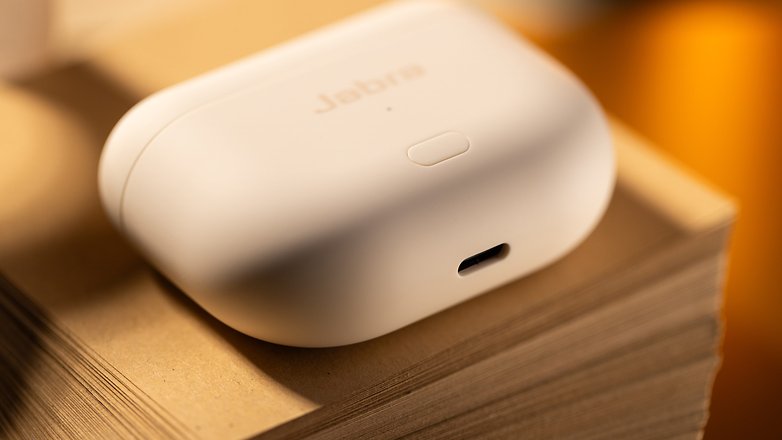
Battery and recharging
The Jabra Elite 10 Gen 2 have a battery life of six hours with active noise reduction. With recharging via the case, the earphones can last up to 27 hours. The case also supports wireless recharging.
Pros
- Good battery life of 6 hours with ANC.
- Wireless charging.
Cons
- -
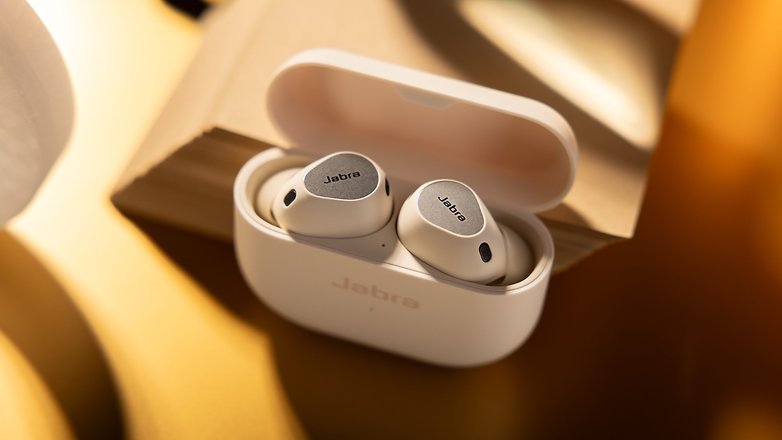
Personally, I've used the Jabra earphones within these parameters:
- 100% charged
- Port detection disabled
- No charging during my session
- Active noise reduction always on
- 50% listening volume
- Paired with an iPhone
I lasted over 5h30 on a single charge before getting the low battery warning. Full recharging via the case is difficult to measure with wireless headphones. The manufacturer says it can take up to three hours. And five minutes of recharging recovers the equivalent of one hour of listening. These are perfectly acceptable scores, in line with the market average.
Technical data
| Technical data | |
|---|---|
| Product | |
| Image | 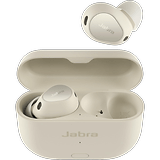 |
| Design |
|
| Weight |
|
| Dimensions |
|
| IP rating |
|
| Audio |
|
| Frequency response |
|
| ANC |
|
| Bluetooth |
|
| Codec |
|
| Multipoint |
|
| Battery life |
|
| Autonomy with case |
|
| Wireless recharging | ✔️ |
Conclusion
Would I advise you to buy the Jabra Elite 10 Gen 2 at $279? No, not right now.
The basic Jabra Elite 10 were already the best wireless noise-canceling headphones in my opinion. This Gen 2 is certainly very similar. But the few changes Jabra has made are all positive. And the functionality of the case as a Bluetooth transmitter is really great.
As a product, the Jabra Elite 10 Gen 2 is an excellent choice. Probably the best right now, in my opinion. That's why I rate them 4.5 out of 5. For a swan song, these Jabra Elite 10 Gen 2 are a success. A fine farewell gift. But not at $279.
You have to consider the context. The Jabra Elite range is going out of business. The manufacturer plans to sell out its stock by the end of 2024. It has certainly promised to provide some after-sales service and software updates. But for how long?
Personally, I'm going to make these my daily headphones. But I wouldn't recommend rushing out and spending $279 on them. Wait a few months and you'll surely find them at much more attractive prices. If the manufacturer decides to make firmer and more concrete commitments regarding after-sales service and upgrades, I'll update this review.
What do you think of the Jabra Elite 10 Gen 2 after this test? Would you consider buying them despite the withdrawal of Jabra Elite products from the market?
